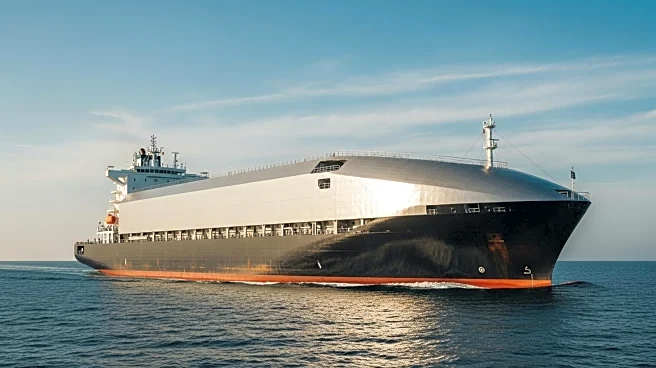What is the story about?
What's Happening?
MSC, a Swiss-based company, currently holds the most valuable container fleet globally, valued at $49.6 billion, according to data from VesselsValue. The company owns 707 vessels, with 584 active and 125 on order, primarily in the container sector. MSC's investment in Ultra Large Container Vessels (ULCVs) represents about 59% of its order book. The value of container vessels has increased, particularly for older ships, with 15-year-old Sub Panamax vessels seeing a 19.96% rise in value this year. French company CMA CGM follows MSC with a fleet valued at $35.5 billion, while BoComm Leasing ranks third with a fleet worth $33.3 billion. The maritime industry is increasingly focusing on decarbonization, with a significant portion of the fleet achieving high energy efficiency ratings.
Why It's Important?
The valuation and expansion of MSC's fleet highlight the growing demand and investment in the global shipping industry, particularly in container shipping. This trend is significant for global trade, as container ships are crucial for transporting goods worldwide. The focus on ULCVs and energy efficiency reflects the industry's shift towards more sustainable practices, driven by regulatory pressures and market demands. Companies like MSC are positioning themselves to meet future shipping needs while addressing environmental concerns. This development impacts global supply chains, shipping costs, and environmental policies, influencing stakeholders from shipping companies to consumers.
What's Next?
As MSC continues to expand its fleet, the company may further influence global shipping routes and logistics strategies. The emphasis on energy efficiency and decarbonization could lead to more stringent regulations and innovations in ship design and operations. Other shipping companies might follow MSC's lead, investing in larger, more efficient vessels to remain competitive. The industry's focus on sustainability could also drive collaborations with technology firms to develop new solutions for reducing emissions and improving operational efficiency.














